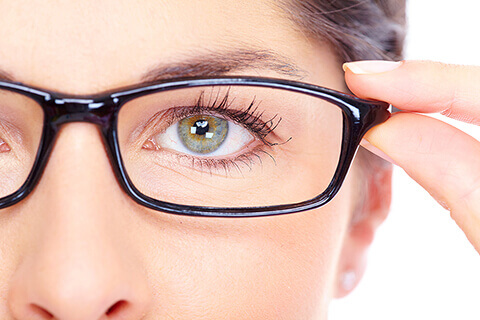Vision & Vitamins: Can supplements prevent/treat nearsightedness (myopia)?

If you or your children wear glasses for nearsightedness (myopia) you have probably seen advertisements for vitamins and supplements that claim to prevent or reduce nearsightedness. Approximately 1.6 billion people were nearsighted in 2000, and up to 2.5 billion worldwide are expected to be nearsighted by 2020. The myopia boom in East Asia has resulted in an increase in myopia from 10-20% in China in the mid-twentieth century to up to 90% of teens and young adults with nearsightedness today. According to a recent article in the journal Nature up to 96% of 19 year olds in Seoul are nearsighted. While there is a genetic or hereditary cause for nearsightedness, this increase in myopia worldwide indicates that other factors may be important.
It has been a longstanding theory that prolonged near work including reading and screen time may lead to an increase in nearsightedness. A newer finding is that light levels and time spent outdoors in natural light may be protective in preventing myopia progression – and in some countries public health posters tell children to “Keep Myopia Away, Go Outside And Play!” There does seem to be a positive effect of natural light (and not just that playing outside does not involve reading or near work) since some animal studies confirm this finding.
Can vitamins prevent increasing nearsightedness? There is little evidence to prove most of the various vitamins and supplements that are marketed to reduce myopia, except more recently for Vitamin D. There may be a connection between the findings that more time in natural light seems to reduce increases in nearsightedness and the Vitamin D findings. When UVB from sunlight shines on bare skin the body produces Vitamin D. This vitamin can also be found in fortified milk, cereal, and other foods. In spite of this many people may be deficient. A blood test can determine your Vitamin D levels to find out if you are deficient. Supplements can boost your Vitamin D levels, but too much can lead to dangerously high calcium levels – so as with all supplements and vitamins more isn’t always better. It is advisable to work with a nutritionist or physician to determine the dose that is right for you.
While there is no strong studies to support taking other supplements to prevent increasing nearsightedness, it is a good idea to have a diet which includes colored fruits and veggies, fish, and nuts.
If you have questions about laser vision correction or wish to book a complimentary evaluation with Dr. Anderson Penno, contact Western Laser Eye Associates.
